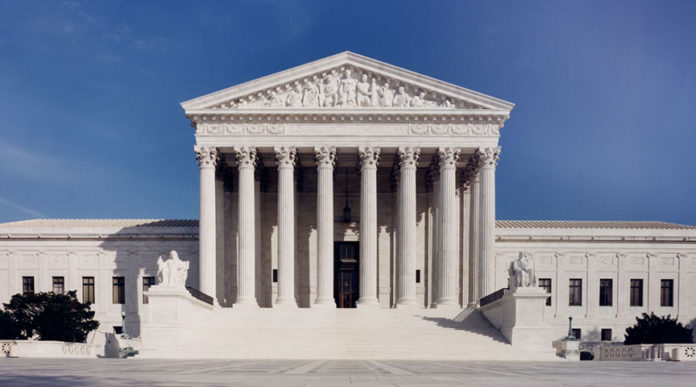The US Constitution sets up our form of government. It establishes the Legislative Branch as Congress (Article 1), the Executive Branch as President (Article 2), and the Judicial Branch as the Supreme Court (Article 3). The Founding Fathers were extremely worried about these functions overlapping, as they just declared independence from a system of government where those lines blur. Those that make law (Legislative) should not enforce law (Executive) or interpret law (Judicial). Currently, we have two branches visibly crossing these functions: activist judges that legislate from the bench, and Presidents that issue new law, via Executive Orders (EOs). EOs were intended to specify exactly how existing law was to be enforced, not create new law. But the silent branch cross-over is the Executive Branch, at the Cabinet-level agencies, creating ‘rules’, that have the force of ‘law’, without ever coming to a vote in Congress. Note how dangerous this is to a Representative Republic, as only Legislative officeholders, plus the President, serve by election of voters. The ‘appointed’ class is the issue at hand. Let’s dig.
Each of the Cabinet-level agencies covers a specific section of Executive Branch enforcement. These were historically agencies to advise the President upon their special areas of knowledge. They include:
- Secretary of State
- Secretary of the Treasury
- Secretary of Defense
- Attorney General
- Secretary of the Interior
- Secretary of Agriculture
- Secretary of Commerce
- Secretary of Labor
- Secretary of Health and Human Services
- Secretary of Housing and Urban Development
- Secretary of Transportation
- Secretary of Energy
- Secretary of Education
- Secretary of Veterans Affairs
- Secretary of Homeland Security
- Trade Representative
- Director of National Intelligence
- Office of Management and Budget
- Homeland Security
- Director of the Central Intelligence Agency
- Administrator of the Environmental Protection Agency
- Administrator of the Small Business Administration
While most of these agencies fill necessary roles, many are pure overhead, in many folks’ opinion (mine included). For example, the Department of Education doesn’t educate anyone; the Department of Agriculture doesn’t grow anything, or assist farmers in growing anything; the Commerce Department doesn’t assist in commerce, etc. But where the real problem is, pertinent to this writing: each of these agencies, and the sub-agencies under them (think Internal Revenue Service, under the Department of the Treasury), have the ability to enact ‘rules’ that have the force of ‘law’. As stated above, ‘rules’ do not require a Congressional vote, just the approval of the Secretary of the associated department. This is referred to as ‘Administrative Law’. You can absolutely be fined or imprisoned for breaking these ‘rules’. This whole concept violates the entire scope of the Constitution, as the Executive Branch has ZERO business authoring law. It creates unelected ‘rule makers’, that exist in DC regardless of which party is in control of the Presidency, the House, or the Senate. Note that the President appoints the heads of these Departments, with the consent of the Senate, but anyone under the Department heads are a bit more nebulous. Most of the longest-tenured officeholders in our government fall into this category. Fun question: who sets their salaries? Benefits? How many of these folks are there? If you answered, “No one is sure”, you’d be correct. Think of them as lobbyists for the inner workings of our government. And that is just as scary as it sounds. If Congress or the President does not get this leviathan under control, we are much closer to the British Royalty system that we left in 1776 than most would realize.
Addendum: recent notice of the ‘Administrative State’ is the performance of the Federal Bureau of Investigation (FBI). This Bureau is not a Cabinet-level function—the FBI reports to the Director of National Intelligence AND the Attorney General. But the impact of ‘Administrative Law’ is quite clear here. If the FBI becomes partisan, as many folks have stated, their entire function can become a political bludgeon, wielded by vengeful politicians—whether at the behest of the current party in charge or not.
The FBI is tasked with Federal law enforcement and investigation of domestic crimes that cross State borders (rendering State law enforcement and investigation ineffective). The FBI rose to prominence in the days of bank robberies, where criminals crossed State lines to avoid pursuit. Similar cases that involve the FBI include kidnapping, terrorism, and currency counterfeiting. The pure intention of the FBI charter is to be apolitical, but upper management in that bureau is EXACTLY political in nature!
The current issue at hand: what if the cases the FBI is investigating have a political impact? Remember, the incoming President either allows the existing FBI Head to continue in their role, or appoints a new successor—he does not replace ANYONE ELSE in that vast bureaucracy! The VERY real potential of an incoming GOP President having an entire FBI adversarial to his administration (or sympathetic to a past Democrat administration), or vice versa, is quite troublesome, to say the least. Long-time rank-and-file FBI agents, and managers at every level of the bureau, may be at odds with their current supposed boss. The potential for terrible implications is fairly obvious. Maybe they sit on an investigation that is negative toward a person or group that they are politically sympathetic to, regardless of possible criminal behavior or strong evidence of such. Maybe they emphasize (or create) cases against political opponents that otherwise would not come under scrutiny, had they been another party. The very possibility of two different standards of law enforcement and investigation (the party the FBI may be for or against) may (and SHOULD) nullify its entire existence. Starting over may be the only course of action, since losing their apolitical label makes them suspect, if not criminal themselves. The first step in illegitimacy is losing the public trust, and that has arguably already happened.

























